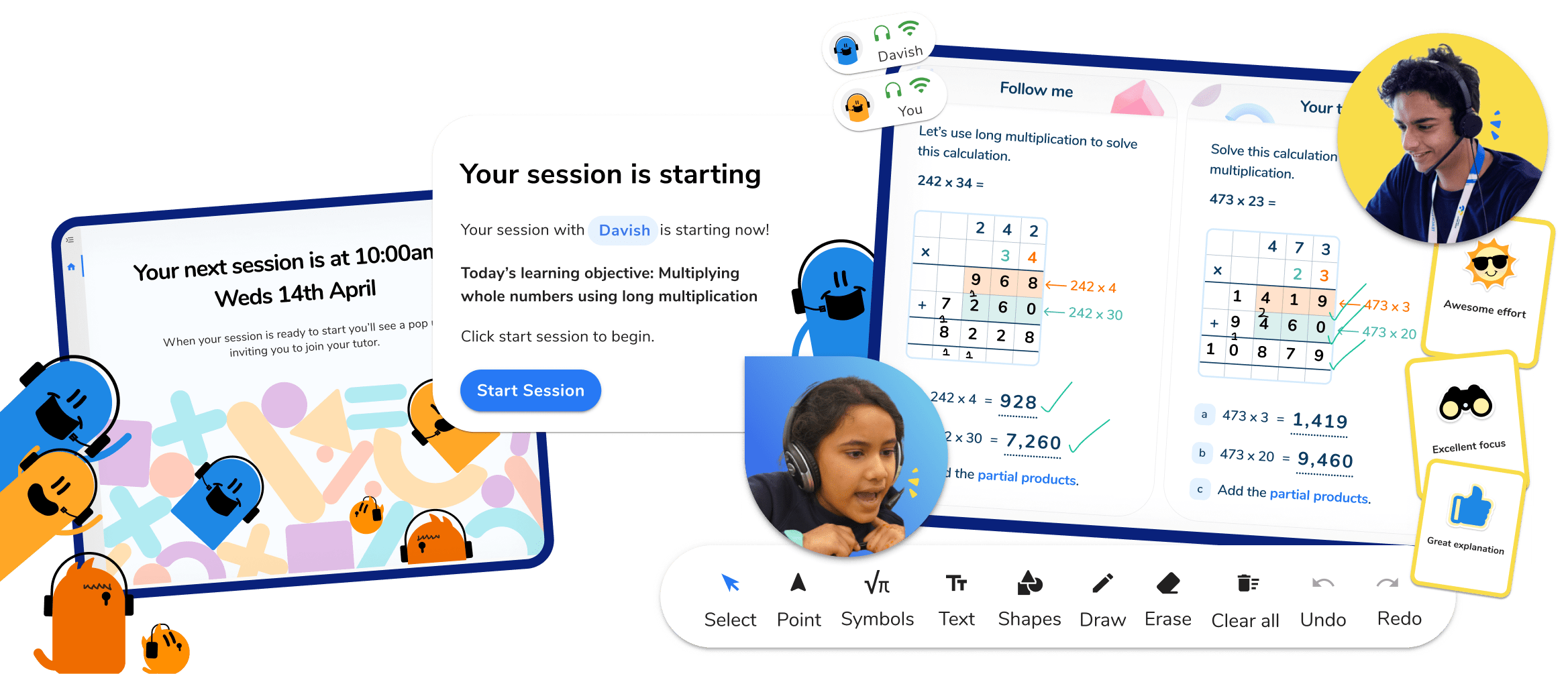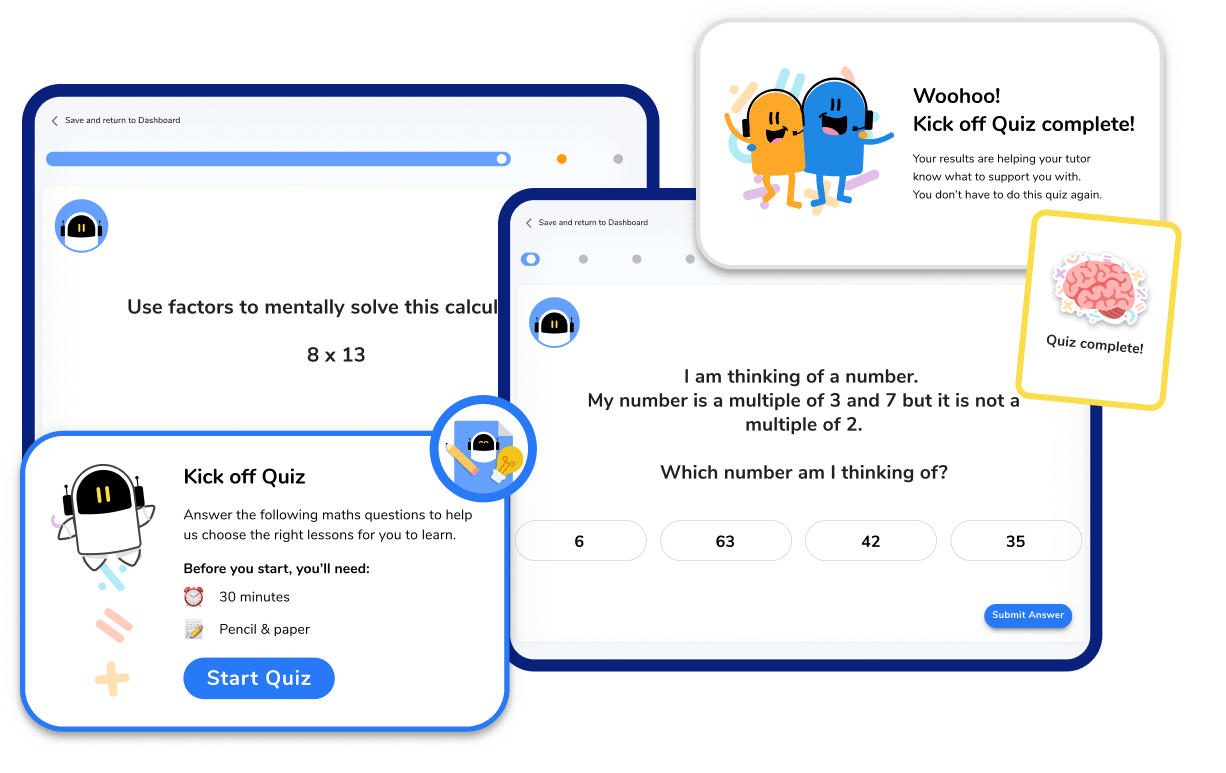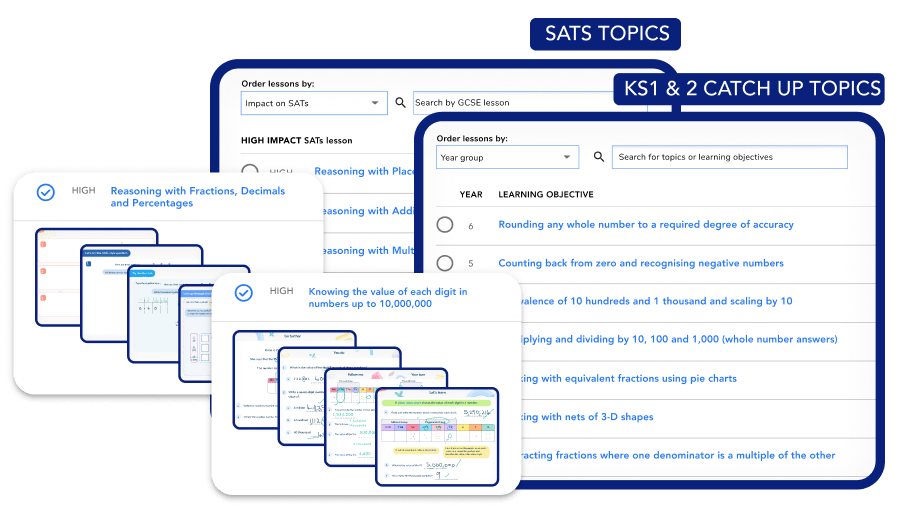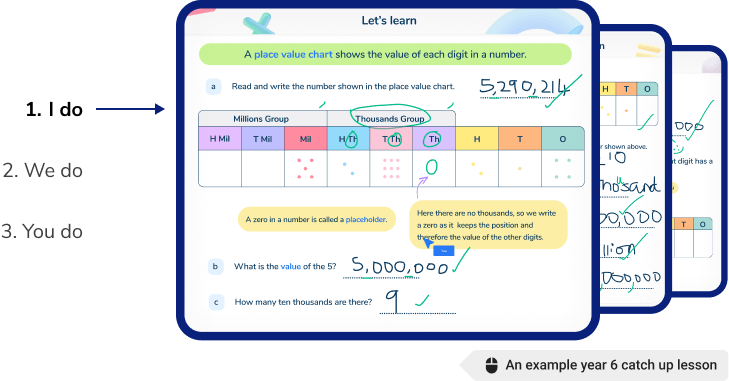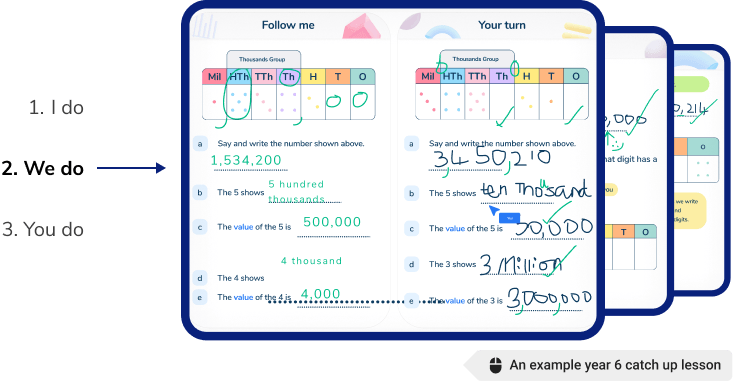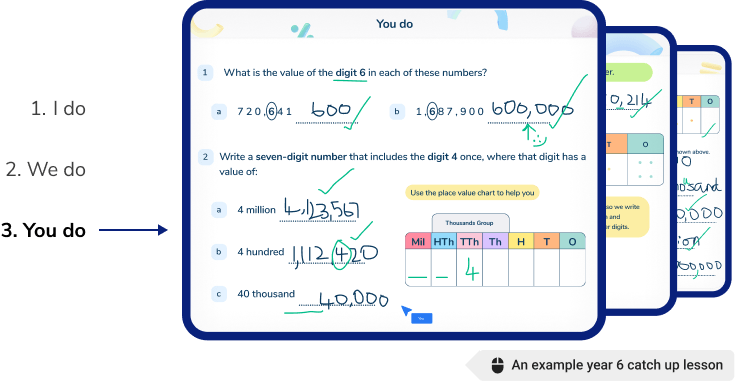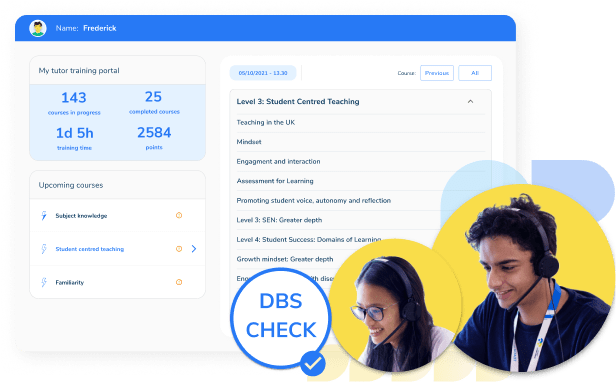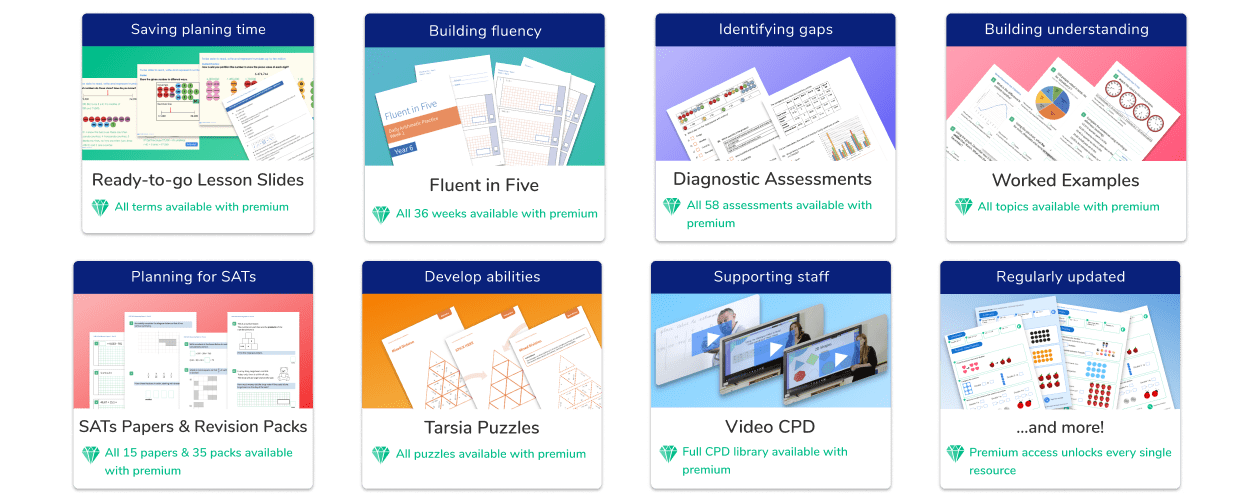Subtracting using the column method with exchanging
View Year 3-5 Catch Up Programme
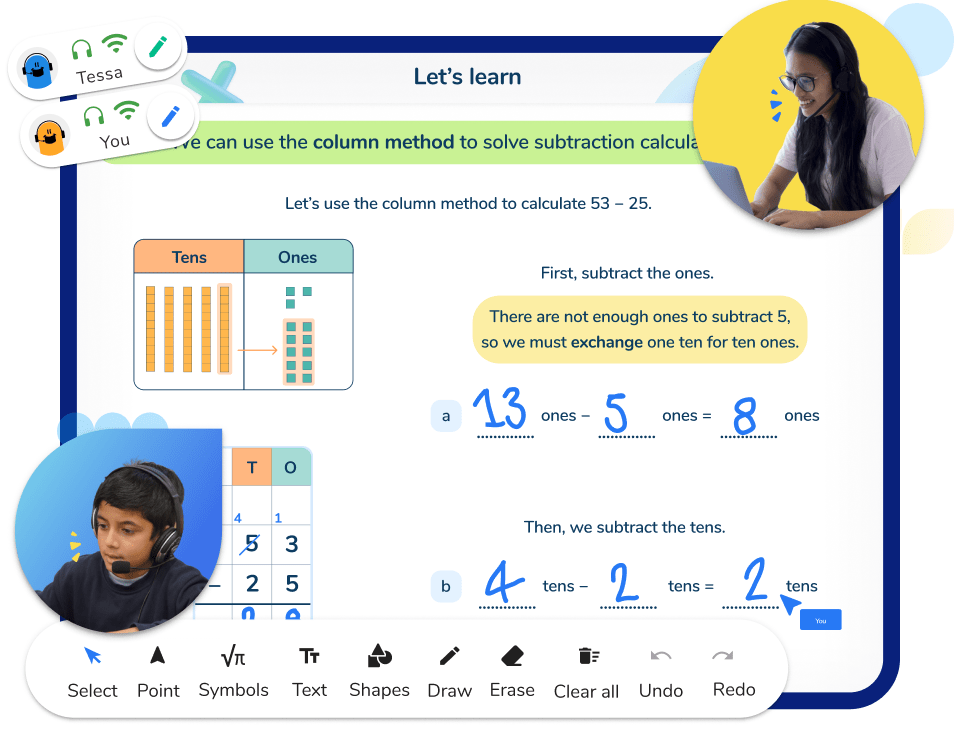
Let's learn
The first question introduces each concept and helps pupils feel ready to learn
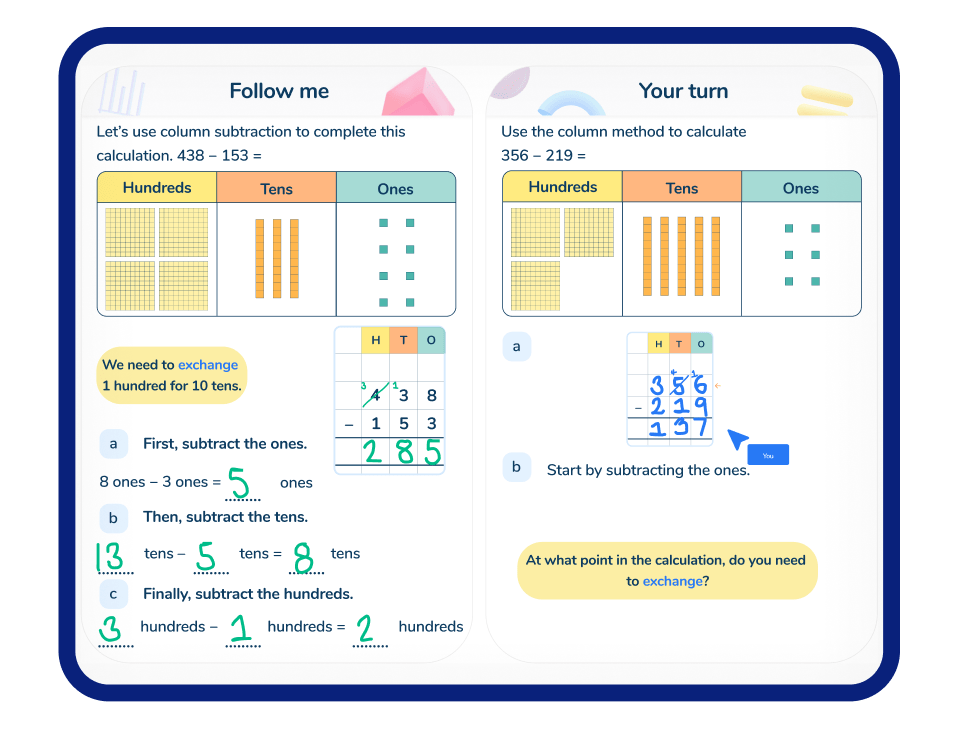
Follow me + your turn
Pupils work through a scaffolded example with their tutor before trying a similar question on their own
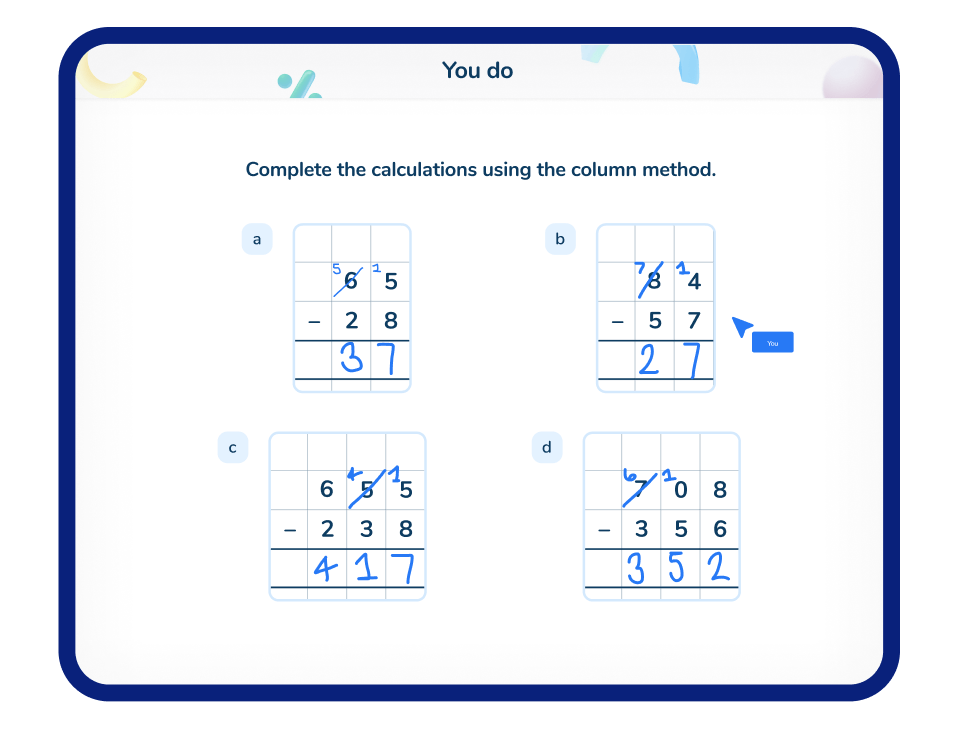
You do
A carefully sequenced next question ensures pupils can apply knowledge to different contexts
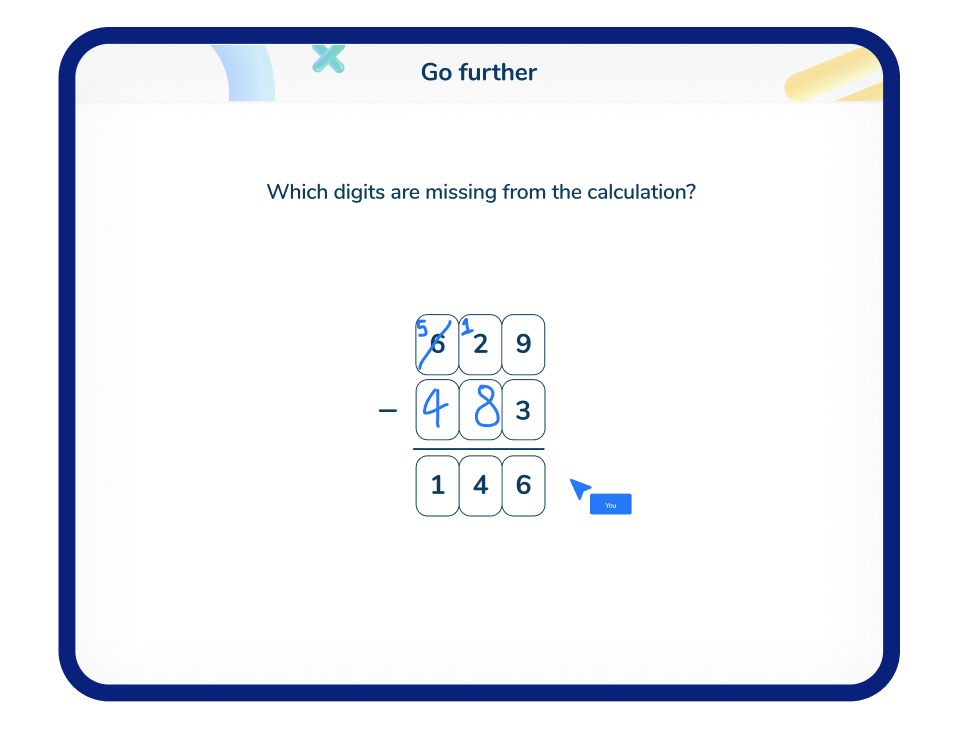
Go further
This gives pupils an opportunity to apply their knowledge to problem solving and reasoning questions
Simplifying fractions
View Year 3-5 Catch Up Programme
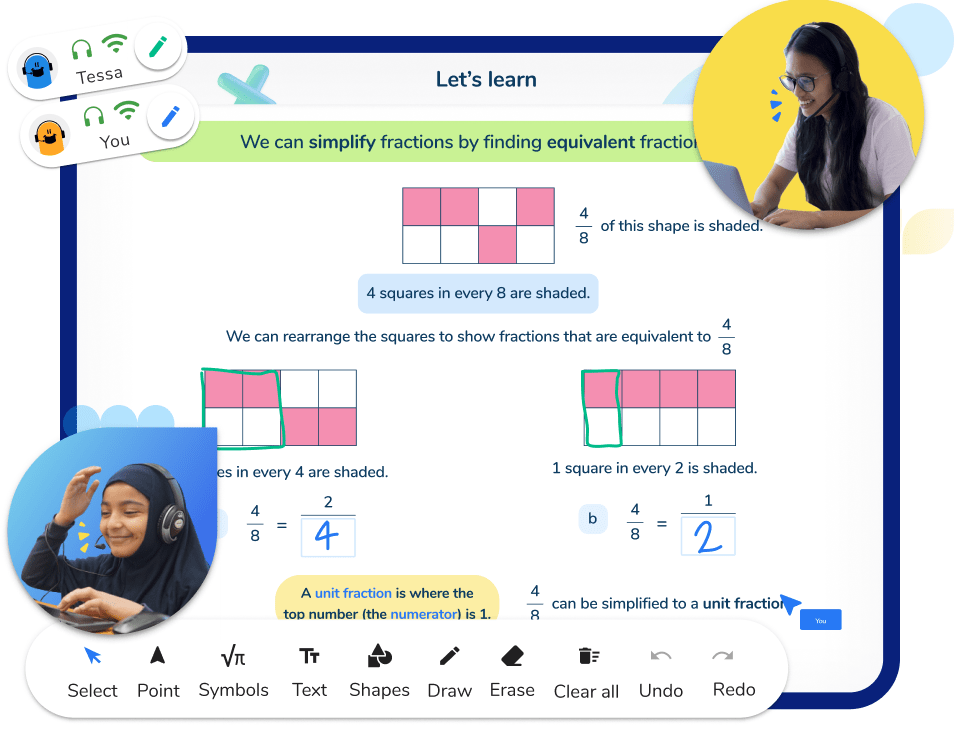
Let's learn
The first question introduces each concept and helps pupils feel ready to learn
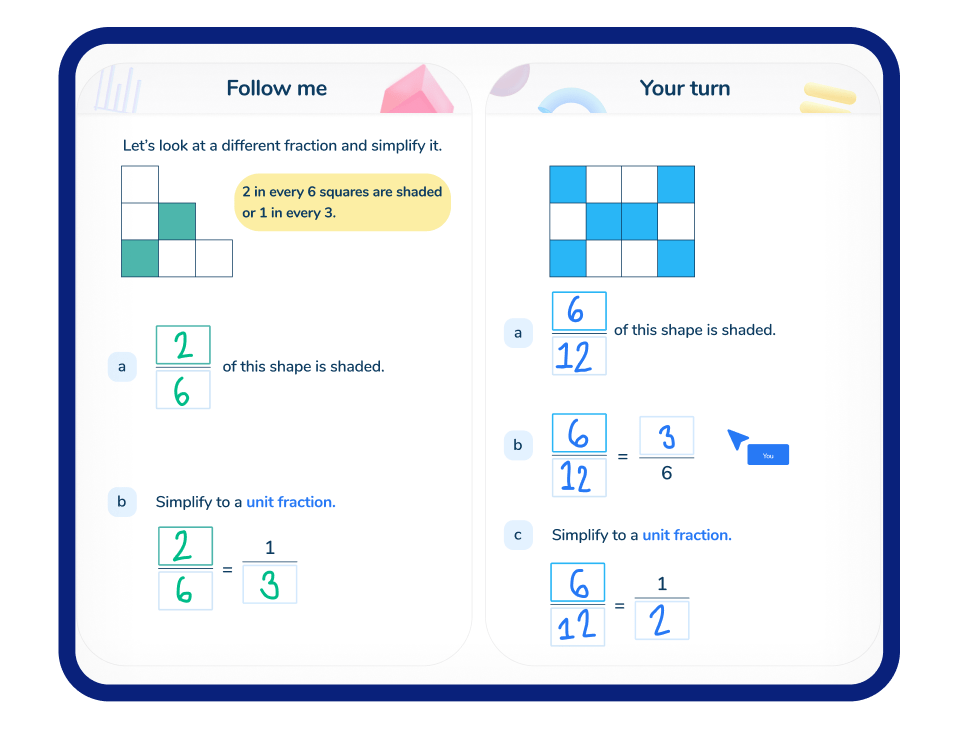
Follow me + your turn
Pupils work through a scaffolded example with their tutor before trying a similar question on their own
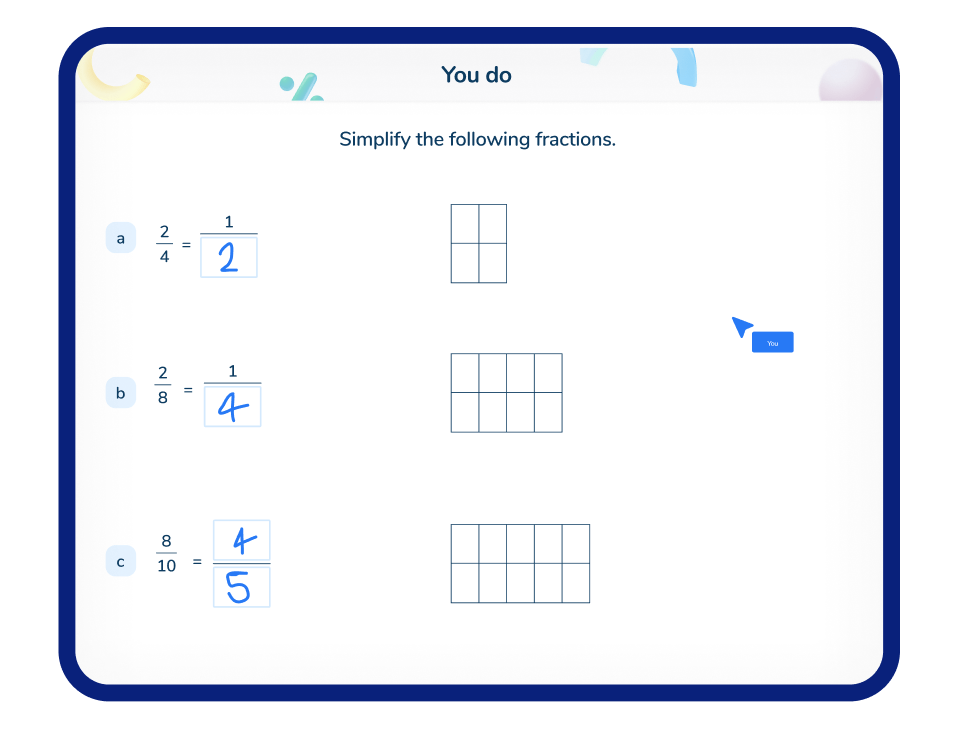
You do
A carefully sequenced next question ensures pupils can apply knowledge to different contexts
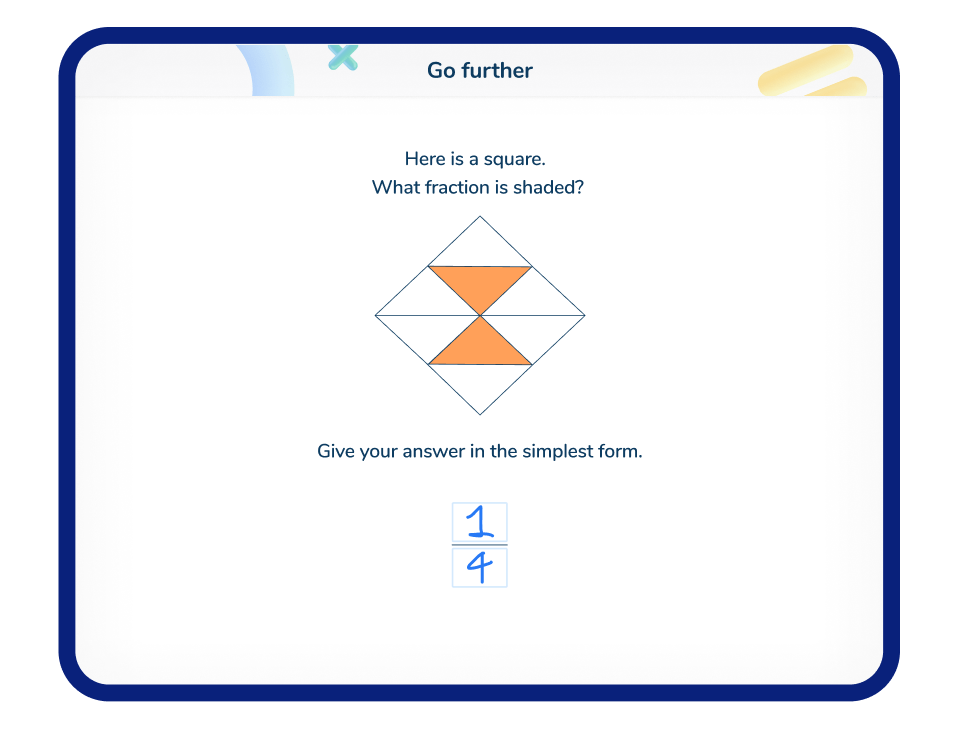
Go further
This gives pupils an opportunity to apply their knowledge to problem solving and reasoning questions
Finding prime numbers
View Year 3-5 Catch Up Programme
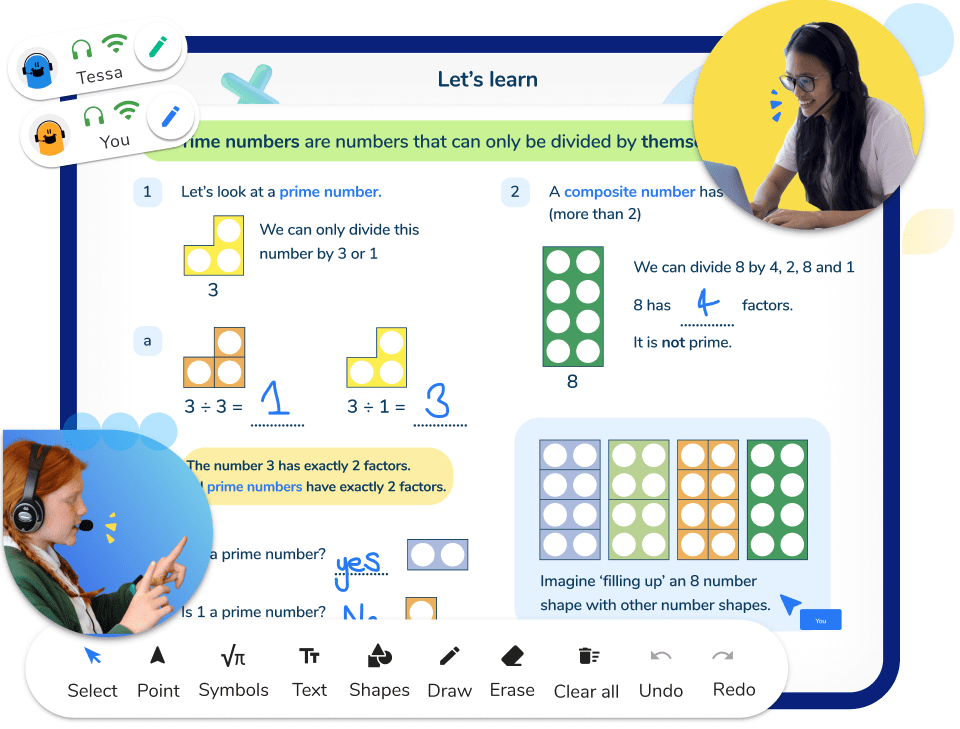
Let's learn
The first question introduces each concept and helps pupils feel ready to learn
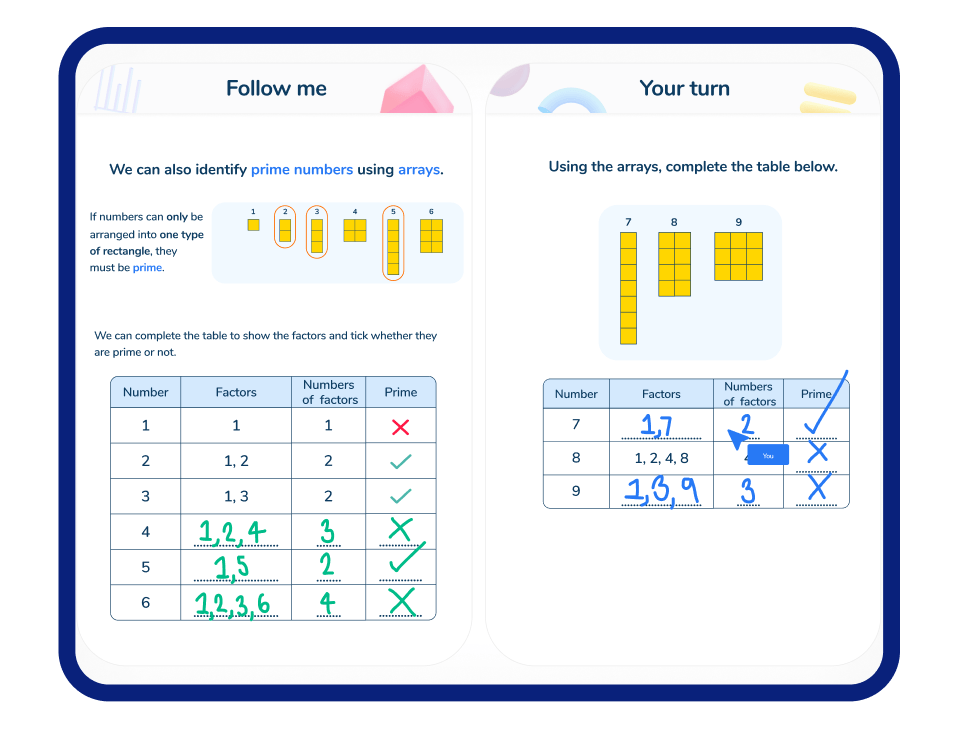
Follow me + your turn
Pupils work through a scaffolded example with their tutor before trying a similar question on their own
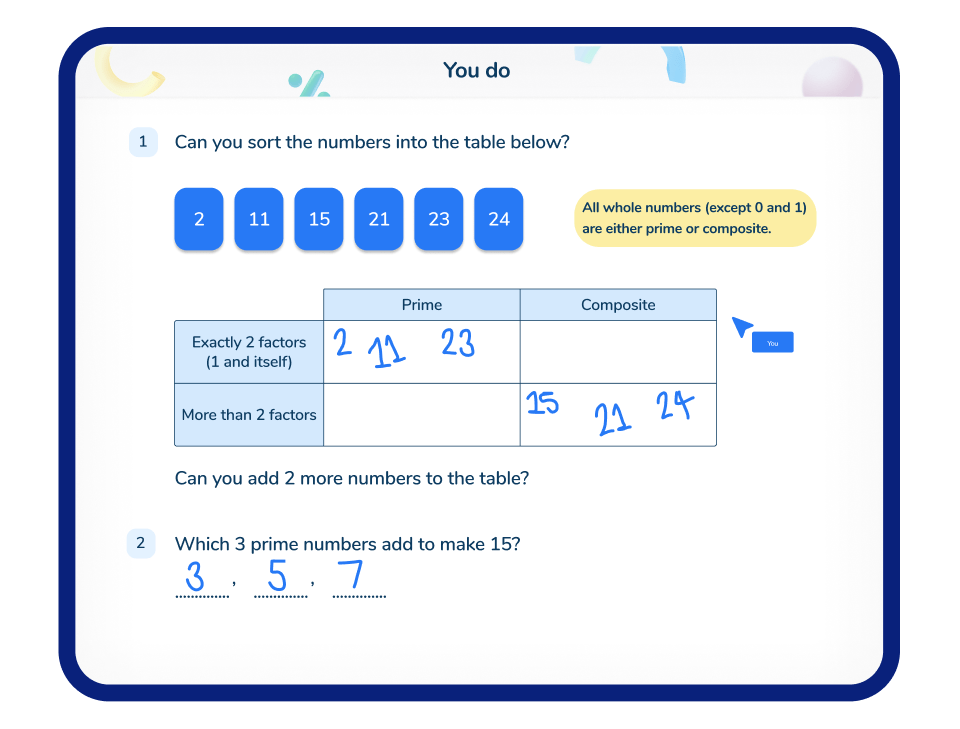
You do
A carefully sequenced next question ensures pupils can apply knowledge to different contexts
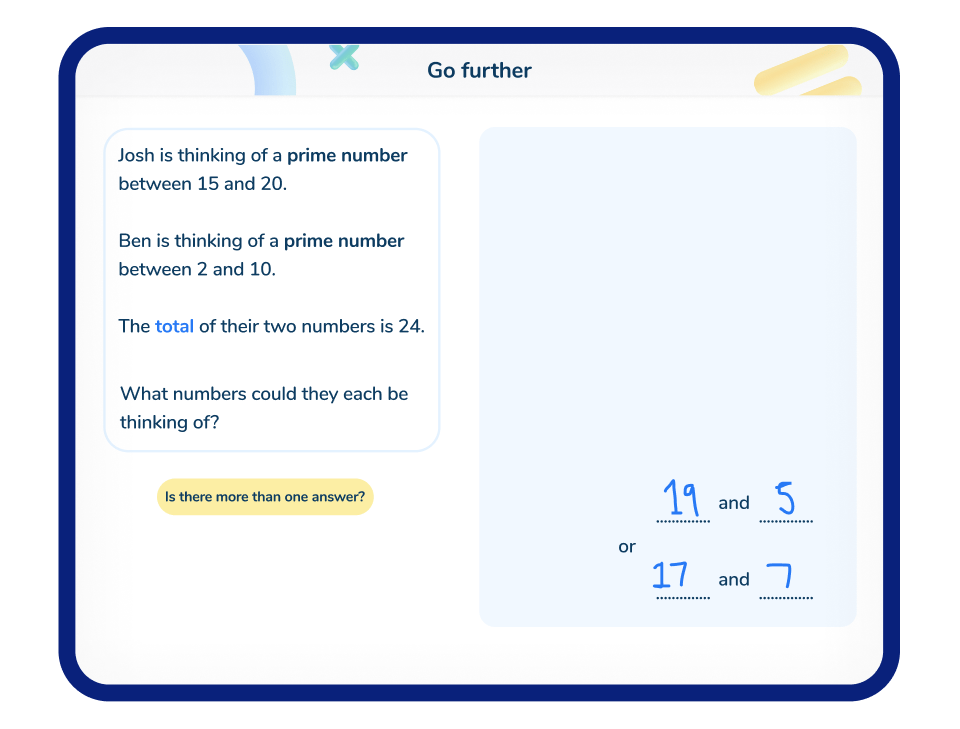
Go further
This gives pupils an opportunity to apply their knowledge to problem solving and reasoning questions
Knowing the value of each digit in numbers with up to 3 decimal places
View Year 6 Catch Up Programme
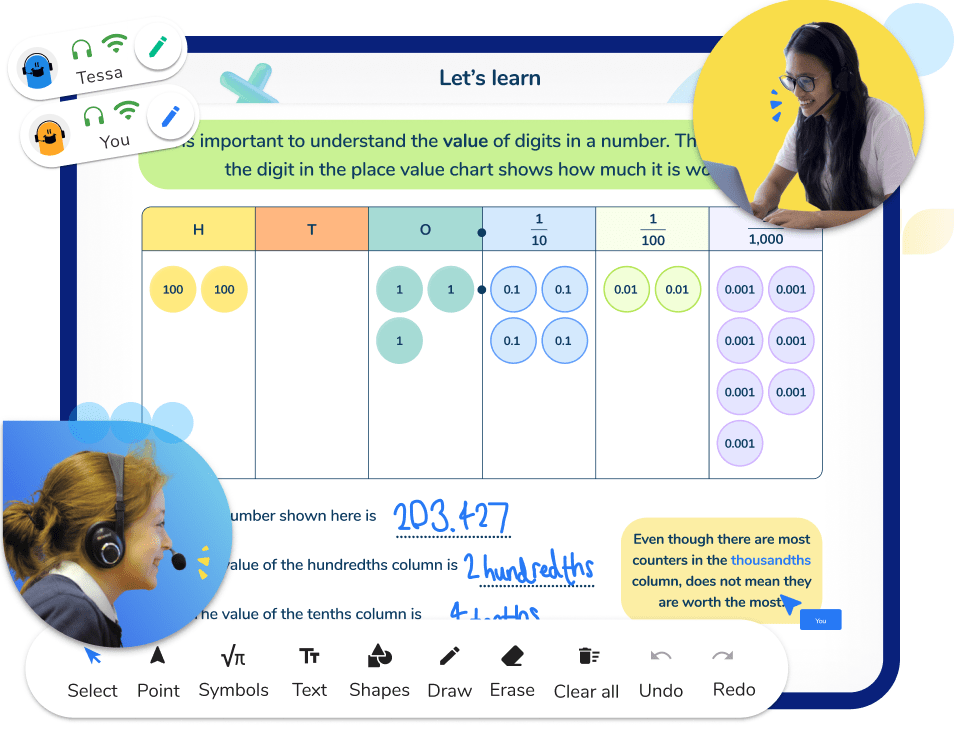
Let's learn
The first question introduces each concept and helps pupils feel ready to learn
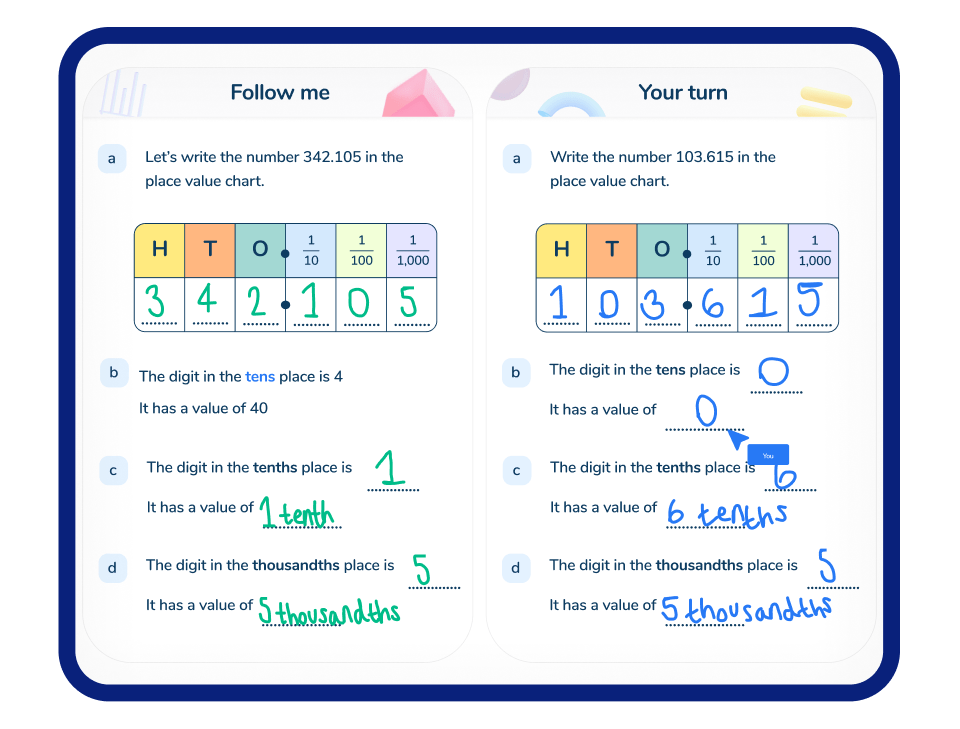
Follow me + your turn
Pupils work through a scaffolded example with their tutor before trying a similar question on their own
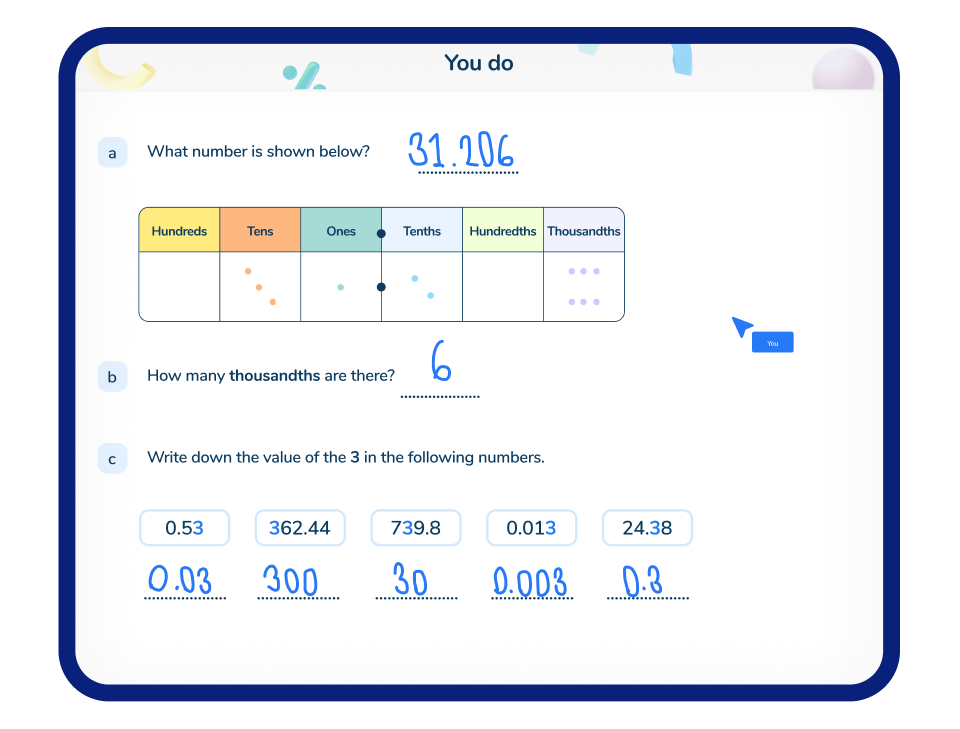
You do
A carefully sequenced next question ensures pupils can apply knowledge to different contexts
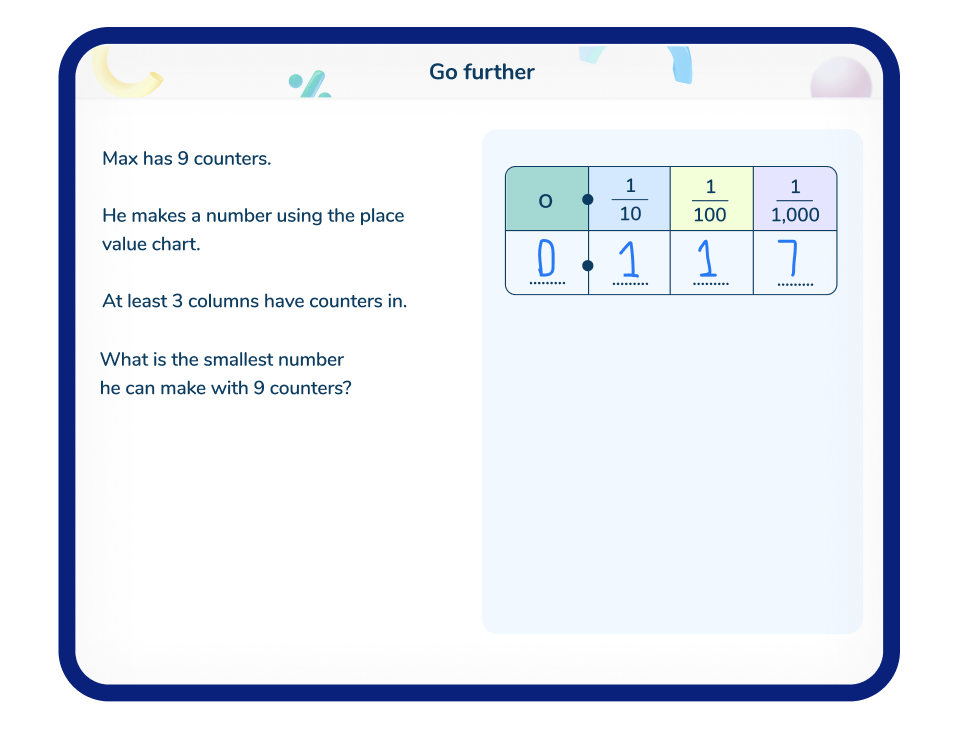
Go further
This gives pupils an opportunity to apply their knowledge to problem solving and reasoning questions
Reasoning with money
View SATs Revision Programme
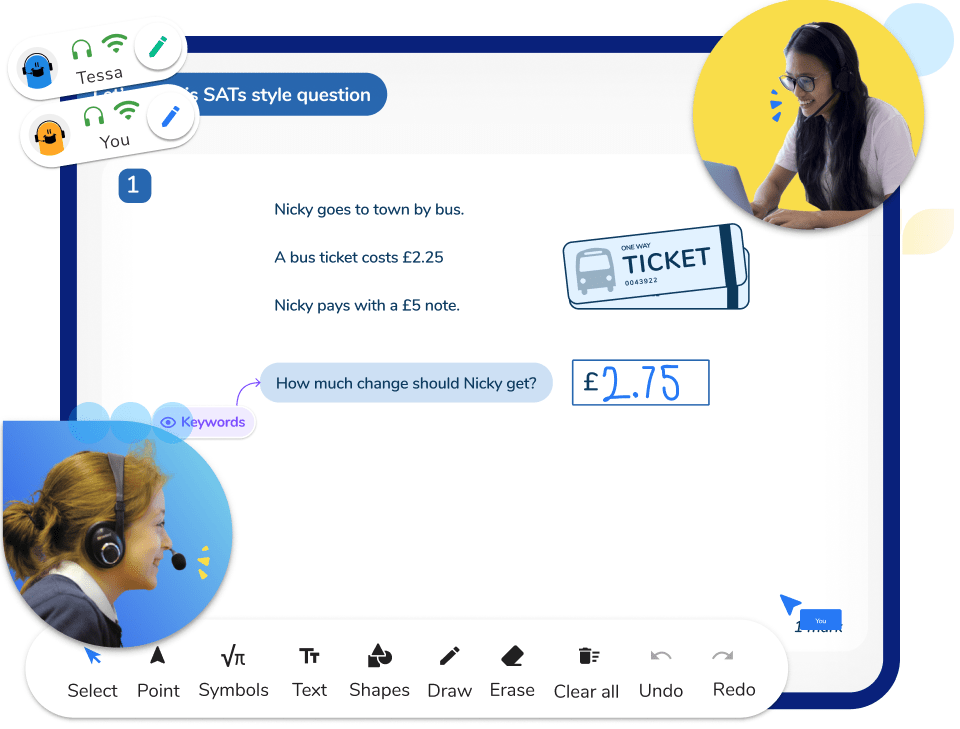
Fluency
Each lesson starter helps tutors to quickly assess understanding
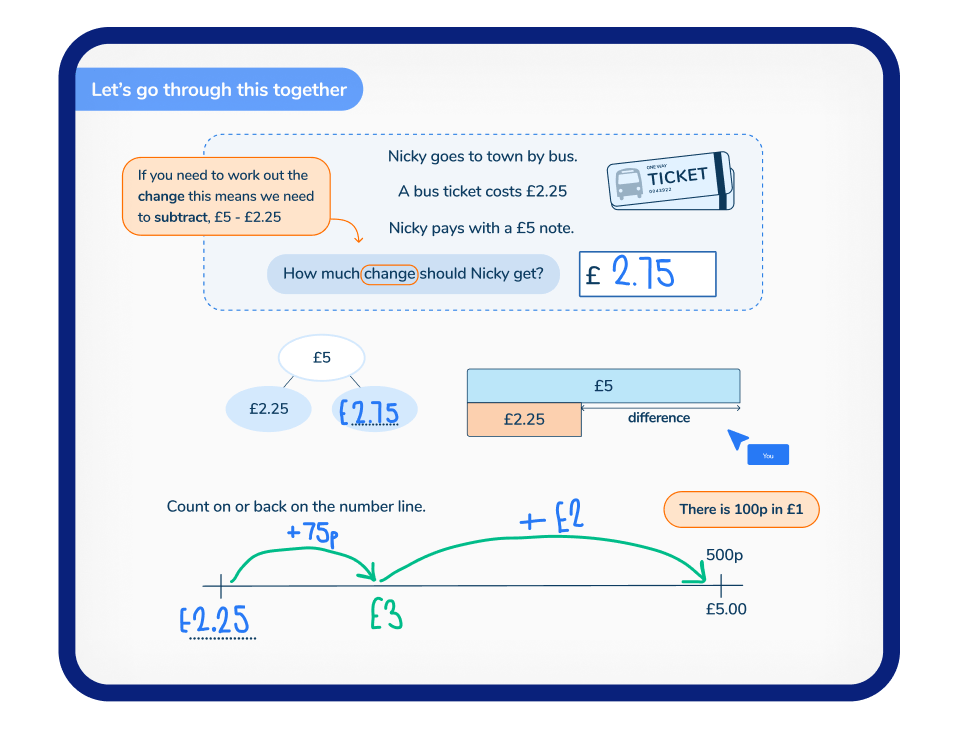
Let's try this SATs-style question
Prompts on-screen and from the tutor help pupils learn what to look out for
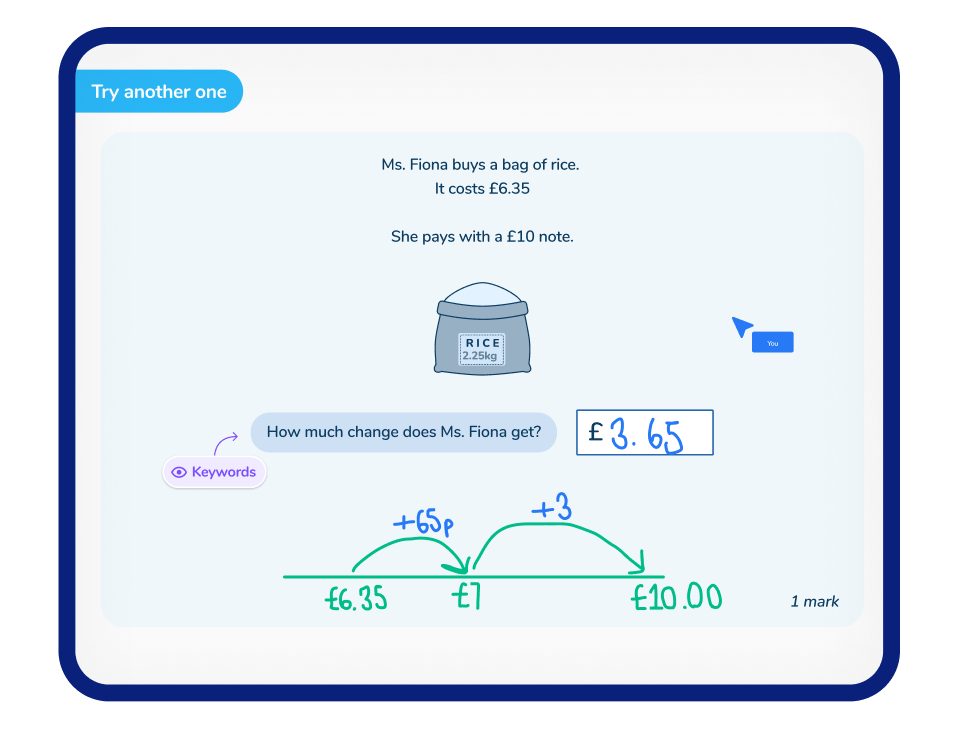
Let's go through this together
Scaffolded slides give pupils the strategies they need to eventually answer questions independently
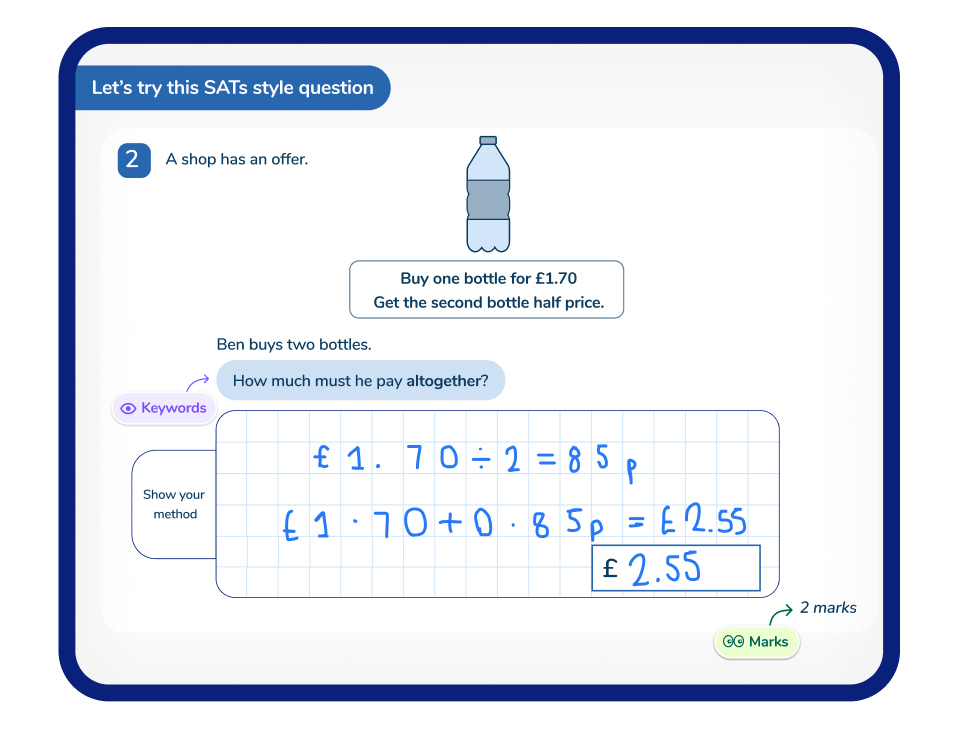
Try another one
This ensures pupils can apply those strategies to a range of different contexts

